Amateur Writing Mistakes

"I get a lot of letters from people. They say: 'I want to be a writer. What should I do?' I tell them to stop writing to me and get on with it."
– Ruth Rendell
The best way to be proficient at something is perhaps the incessant ordeal of trial and error that goes into it. However, repetition alone is not good enough if one doesn't work on the issues that hindered the progress before. Often is the case that one doesn't necessarily realise where their work is falling short of the standard they are striving to achieve and thus fail to improve upon it.
To the general reader, however, these mistakes or shortcomings are more apparent than to the writer. Gripping the attention and gaining the intrigue of the readers is something all writers aim for. Some common flaws often come in the way of achieving this. Whether a piece of writing is good or bad is highly subjective. To generalise the traits of good writing by some constant perimeters is not plausible but one can narrow down the things that make the writing a chore to read, and this is the issue being addressed. From a reader's perspective these are the common glaring mistakes that amateur writers often make, undermining the credibility of their write-ups.
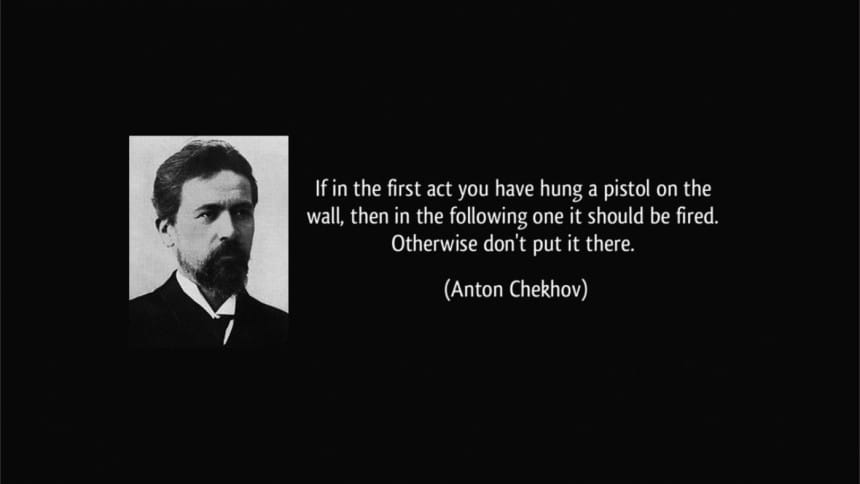
Improper use of metaphors: Metaphors can give any narrative an added degree of edge by a comparison that makes sense in a way the reader perhaps would not have expected. Metaphors give life to examples that would have seemed rigid and tedious otherwise. Bad usage of metaphors leaves the readers confused though and makes the narrative blurrier than it needs to be. Metaphors work by drawing parallel between two seemingly dissimilar subjects connected by a strand of similarity. This strand of connection that the writer establishes is what helps the reader to understand the narrative in a more vivid way. A failed use of metaphor is when this connection is made for the sake of it. Often times the comparison is made with an object that is so far off from the atmosphere and situation of the actual narrative that it takes away the attention from it. And when these metaphors become far too frequent for the reader's liking they become an annoyance instead.

One dimensional characters: A writer builds up his own world in his writing and the most daring task is perhaps giving life to the characters. The mindscape of any sentient being is as complex as it could ever get. To capture the complicacies of a character as the story unfolds is a daunting task. And yet it is an utmost necessity. Even if a complete and detailed description cannot be given, the characters need to be something more than just a plot point or depiction of a stereotype. If the character is an antagonist then there should be reasoning behind his/her actions, characteristics that are more than just "being evil". A term often used in this case is "Comic book villain", which is not valid anymore as most contemporary comic book villains have multiple layers of character building around them. None of us serve a singular purpose in life and neither should the characters in the story. A one dimensional character is not something the readers remember fondly or sympathise with.
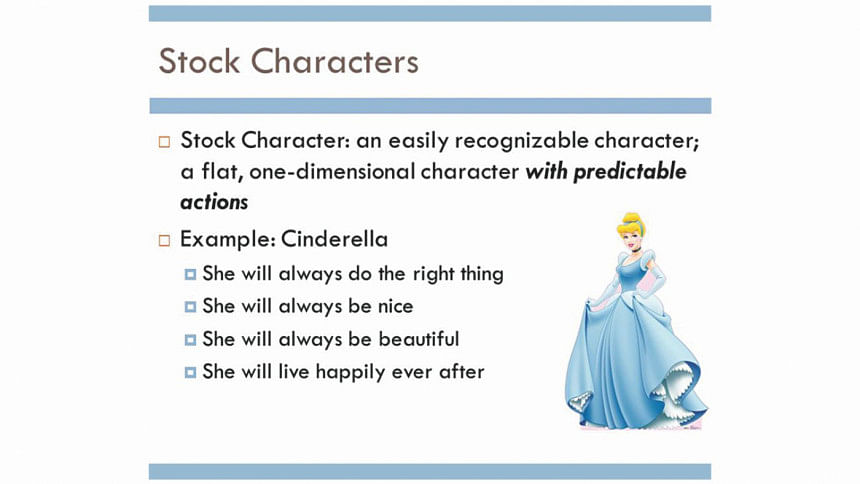
Bland details: There is nothing wrong with a story being thoroughly detailed. However, details can be taxing on the readers if they are not made accessible or enjoyable to read. Details serve to flesh out the story and describe the picture that the writer had in their mind when the story was written. When details are there just for the sake of meeting a word count or making the story seem beefier than it is then that becomes very evident to the reader. A story that is diluted with unnecessary details is often lost on the readers. A term often used in drama can also be applicable to stories to some extent: "Chekov's gun" – a principle originating from Russian playwright Anton Chekov – states that every element in a story must be necessary, and one that will not contribute to the story should be removed. For a written piece one can also expect the details to contribute to the story, whether it is to elaborate on the plot or to build the atmosphere.
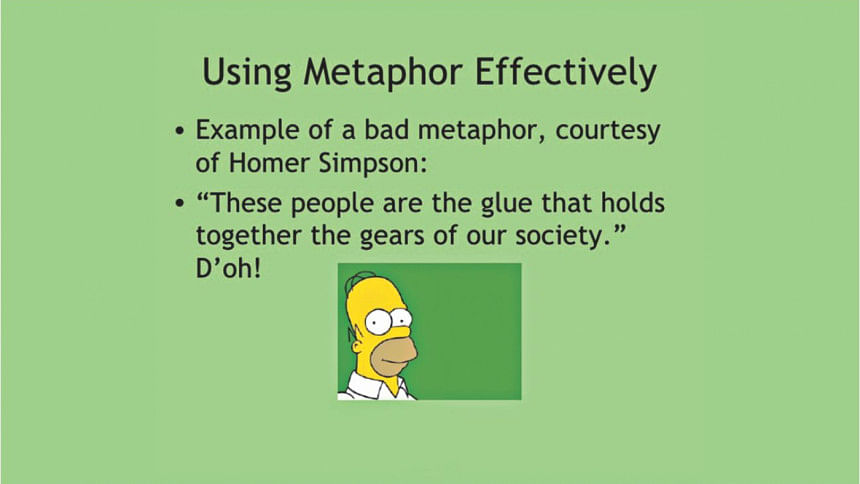
Mary Sue: A "Mary Sue" is a protagonist who is portrayed as unrealistically perfect and often an idealised version of the author themselves. Perfection, in all its glory, is oddly boring. Every being, with all their faults and shortcomings, have an interesting angle to them. Perfection leaves no room for character development and makes the character rather inaccessible to the readers. When the protagonist is an apparent idealised depiction of the author, it just becomes irksome as it starts to read like fan fiction.
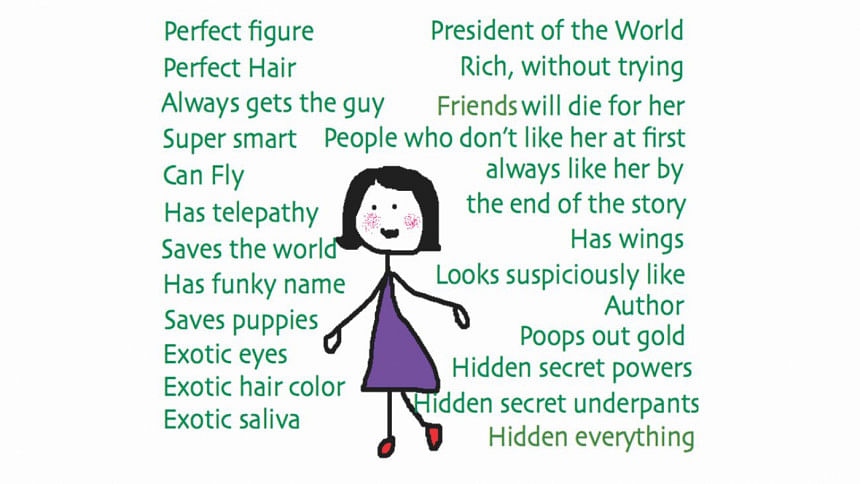
Clichés: Good writers can create worlds of their own and materialise them in their writing. They can make any scenario come to fruition. But when these scenarios keep surrounding a same topic that has been done countless times before in a way that brings nothing new to the table then that's just unimaginative and boring. There is nothing wrong with exploring these much-used topics and it's a hard ask to demand complete originality. But unless there's a spin to the much told story it will not garner any interest among the readers. Sadness doesn't necessarily have to be derived from a terminal disease or the passing of someone. Heartbreak shouldn't always occur on a rainy day. Love shouldn't always bloom over coffee. Happiness must not always come from a loved one's embrace. This is not to say these situations should not be employed but just that they can be done in multiple different ways as well. The same clichéd situations being applied again and again doesn't help to show what the writer is truly capable of.

Lack of connection: A story works as a vessel between the vision of the writer and its interpretation to the reader. When there's a communication gap, it leads to the story being deteriorated from what the writer had in his mind. There are various reasons behind it, one of which is not seeing the story from the reader's perspective. Trying to get a read on the story from a neutral point of view often makes the cracks visible. Another common reason to this is inside reference. Any reference that will be lost on the general reader and only works for people who know the author well should be reconsidered.
When it comes to writing, there are no rules set on stone. However, there are a lot of quirks that can make the reading experience an unpleasant one. These hiccups in storytelling are rarely as visible to writers as they are to the readers since it still makes sense to the writers who have the story fleshed out in their mind. The reader is introduced to the story through the writing alone. To write a great story is a colossal task but avoiding these general mistakes can be the first step to producing write-ups that are more engaging and endearing to the average reader.

 For all latest news, follow The Daily Star's Google News channel.
For all latest news, follow The Daily Star's Google News channel. 


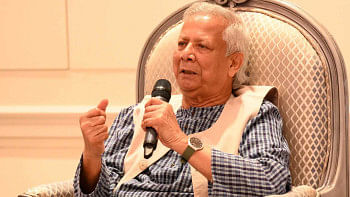
Comments